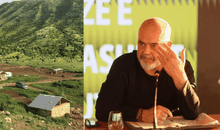
 Flash News
Flash News
Ceno Klosi with over 800 stolen votes, Balluku finds the reason is the tiredness of the counters
"Fast & Furious" in the former Block, police chase an Audi Q8, 4 cars collide
Car hits two tourists on a motorcycle in Fushe Arrëz, one of them dies
Serious accident in Thumanë, one dead, 3 injured
Durrës Court suspends the director of Pre-University Education from duty

Thousands of Kosovo Serb citizens continue to work in parallel institutions, financed and managed by the state of Serbia, since the post-war in 1999.
Serbia allocates tens of millions of euros for them every year.
Municipalities, companies and public enterprises, kindergartens, primary and secondary schools, as well as public universities, financed directly by the Government of Serbia, are in many cities of Kosovo, where members of the Serbian community live.
These mechanisms, although illegal according to the laws of Kosovo, have not stopped operating, despite the fact that Kosovo declared independence in 2008.
An agreement for their elimination was reached in April 2013, within the framework of the Kosovo-Serbia dialogue for the normalization of relations, but its full implementation on the ground leaves much to be desired.
A part of the community is integrated only in some institutions, such as the police or the judiciary.
In the framework of the dialogue, Kosovo and Serbia also agreed on the formation of the Association of municipalities with a Serbian majority, which would have "full jurisdiction" in certain areas, such as: spatial planning, health, education, economic development and so on. .
However, the Government of Kosovo has never implemented this agreement, on the grounds that it could threaten the functionality of the state.
In a meeting in Ohrid, on March 18, the Prime Minister of Kosovo, Albin Kurti, and the President of Serbia, Aleksandar Vučić, agreed on the implementation of a new agreement towards normalization, supported by the European Union.
This agreement, among other things, foresees that the Serbian community in Kosovo will be provided with an "adequate level of self-management".
Exactly what it is about is not yet known.
In a report before the Assembly of Kosovo, on March 23, Kurti said that "self-management is neither self-governance nor self-administration" and added that the former agreements with Serbia cannot be avoided.
I dërguari i posaçëm i BE-së për dialogun Kosovë-Serbi, Mirosllav Lajçak, ka thënë në një intervistë për Radion Evropa e Lirë se Kosova e ka obligim që menjëherë të fillojë me zbatimin e pjesës së marrëveshjes për normalizim, që lidhet me formimin e Asociacionit të komunave me shumicë serbe në Kosovë.
Në një intervistë për REL-in, i dërguari i posaçëm i SHBA-së për Ballkanin Perëndimor, Gabriel Escobar, ka thënë se strukturat paralele të Serbisë që funksionojnë në Kosovë, do të futen në kuadrin ligjor të Kosovës kur ta formojë Asociacionin.
“…kështu që ato nuk do të jenë të udhëhequra nga Serbia, por nga Kosova, përmes Asociacionit”, ka thënë Escobar.
Por, ku gjenden këto struktura dhe si funksionojnë?
Sipas të dhënave publike të Qeverisë së Serbisë, në territorin e Kosovës, Serbia ka mbi 20 komuna paralele aktive.
Disa prej tyre kanë pak staf, por ato më të mëdhatë, si komuna paralele e Prishtinës me seli në Gracaniçë apo komunat paralele në veriun me shumicë serbe – Mitrovicë e Veriut, Zveçan, Leposaviq dhe Zubin Potok – kanë staf më të madh dhe kryejnë detyra të përditshme, ngjashëm si komunat zyrtare dhe të ligjshme të krijuara nga institucionet e Kosovës.
Duke qenë se komuna paralele e Prishtinës është më e madhja në Kosovë, REL-i ka vizituar objektin e saj në Graçanicë, por aty nuk është lejuar qasja e as fotografimi.
Kohë më parë, REL-i ka vizituar edhe komunën paralele serbe në Zveçan. Ajo është në të njëjtin objekt me Komunën e Zveçanit, të krijuar nga institucionet e Kosovës.
Në disa raste, kryetarët dhe stafi serb janë të njëjtë – punojnë edhe për sistemin e Kosovës, edhe për atë të Serbisë.
The Government of Serbia regularly appoints people to leadership positions in its parallel municipalities in Kosovo.
These are some of the decisions signed by the Serbian Prime Minister, Ana Bërnabiq, for the parallel municipality of Pristina and that of Suhareka:
On July 23, 2021, the Government of Serbia appointed leaders and members in these 16 parallel municipalities in Kosovo: Kaçanik, Skenderaj, Fushë Kosovë, Shtime, Deçan, Podujevë, Pristina, Dragash, Vushtrri, Istog, Pejë, Gjakovë, Rahovec, Zveçan, Suhareke, Leposaviq./REL
Latest news





Lufta në Gaza/ Pse Netanyahu do vetëm një armëpushim 60-ditor, jo të përhershëm?
2025-07-02 21:56:08
US suspends some military aid to Ukraine
2025-07-02 21:40:55



Methadone shortage, users return to heroin: We steal to buy it
2025-07-02 20:57:35
Government enters oil market, Rama: New price for consumers
2025-07-02 20:43:30
WHO calls for 50% price hike for tobacco, alcohol and sugary drinks
2025-07-02 20:41:53






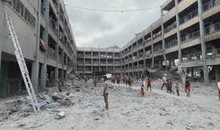
Israel agrees to 60-day ceasefire in Gaza, but many unanswered questions remain
2025-07-02 18:35:27
The weather in Germany is going "crazy", temperatures reach 40°C
2025-07-02 18:22:21
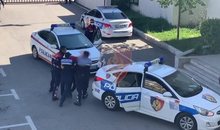
"Fast & Furious" in the former Block, police chase an Audi Q8, 4 cars collide
2025-07-02 17:59:25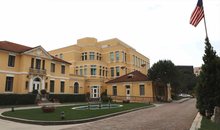
"Birth on a tourist visa? US Embassy warns Albanians: This is prohibited!"
2025-07-02 17:48:16
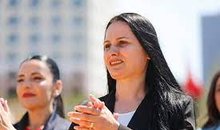

BIRN: Fier recount reveals vote trafficking within open political party lists
2025-07-02 16:57:19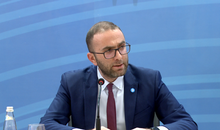

CEO and former director of 'Bankers Petroleum' arrested in Fier
2025-07-02 16:40:42
Car hits two tourists on a motorcycle in Fushe Arrëz, one of them dies
2025-07-02 16:33:23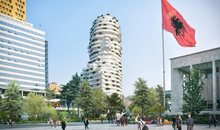


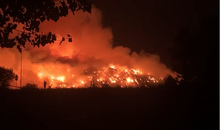
Fire at the Elbasan Incinerator Landfill, Prosecution Launches Investigations
2025-07-02 15:34:54
What you need to know if you travel to a country with active volcanoes
2025-07-02 15:33:03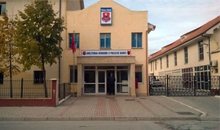
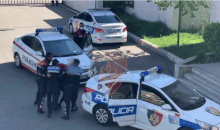
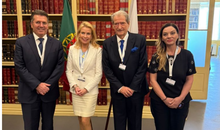

EU proposes 90% reduction in greenhouse gases by 2040
2025-07-02 14:50:23
Europe is burning from the heat / Italy and France are on maximum alert
2025-07-02 14:36:52

Moscow's contradictory statements: Is the friendship with Vučić breaking down?
2025-07-02 14:21:05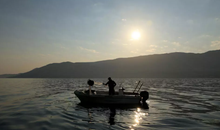
'I lost my battle': Sea warming is killing fishing in Albania
2025-07-02 14:08:35
Sekretet kimike që ndihmojnë në mbajtjen e mjaltit të freskët për kaq gjatë
2025-07-02 14:01:26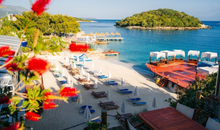
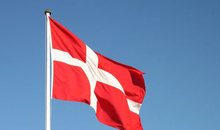
Denmark makes historic decision to make military service mandatory for women
2025-07-02 13:44:33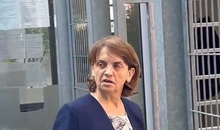
The appeal of the GJKKO leaves former judge Pajtime Fetahu in prison
2025-07-02 13:30:20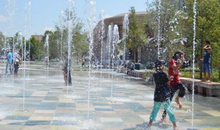
Productivity losses could reduce GDP by 1.3% as a result of extreme heat
2025-07-02 13:21:04
He abused his minor daughter, Zamir Meta is left in prison
2025-07-02 13:04:04
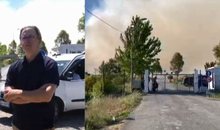
Waste burning in Elbasan, Alizoti: They are poisoning people and stealing money
2025-07-02 12:48:39
Civil disobedience continues in Serbia, dozens of people detained
2025-07-02 12:40:32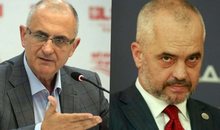
Rama's government was born under the sign of garbage and will end like this
2025-07-02 12:28:09
Water prices increase in the municipalities of the Elbasan region
2025-07-02 12:13:38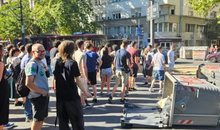
Civil disobedience continues in Serbia, what is happening in Belgrade?
2025-07-02 12:07:44
Serious accident in Thumanë, one dead, 3 injured
2025-07-02 11:54:42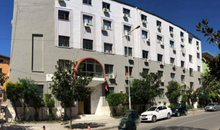
Durrës Court suspends the director of Pre-University Education from duty
2025-07-02 11:49:27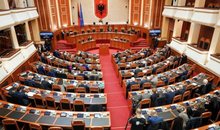
Plenary session on Thursday, what is expected to be discussed
2025-07-02 11:36:43
Europe is burning from heat waves/ What is the 'thermal dome' phenomenon?
2025-07-02 11:26:25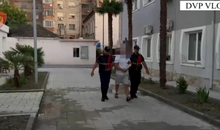
Wanted by Italy for murder, 45-year-old arrested in Vlora
2025-07-02 11:19:31
Fire situation, 28 fires reported in 24 hours, 2 still active
2025-07-02 11:13:20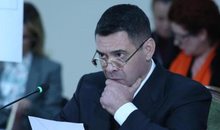
"Buka" file, preliminary hearing for Ahmetaj postponed to July 17
2025-07-02 11:03:30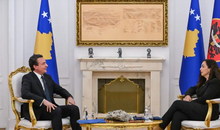
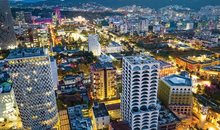

Baçi: Belinda Balluku and Ceno Klosi, the most dangerous "gangs" in Fier
2025-07-02 10:32:09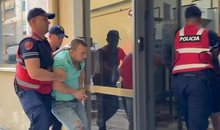
Zamir Meta, suspected of sexually abusing his daughter, arrives in court
2025-07-02 10:21:33

Trump: Israel has agreed to a 60-day ceasefire in Gaza
2025-07-02 10:01:55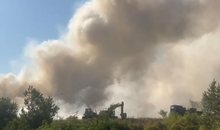
Fire continues at Elbasan landfill
2025-07-02 09:51:13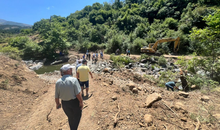

Dates to note during July, important events will occur
2025-07-02 09:31:45
The hearing for Jorgo Goro's claim is postponed
2025-07-02 09:24:19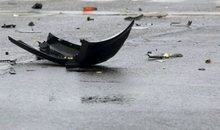



Foreign exchange, the rate at which foreign currencies are sold and bought
2025-07-02 08:42:31

52% of pensioners did not receive full pension in 2024
2025-07-02 08:27:18
Horoscope, what do the stars have in store for you today?
2025-07-02 08:13:36
Hot weather, Wednesday brings high temperatures
2025-07-02 07:59:16
Morning Post/ In 2 lines: What mattered yesterday in Albania
2025-07-02 07:46:15
Heatwave sweeps across Europe, Spain and England record hottest June ever
2025-07-01 22:57:41






Golem and Qerret without water at the peak of the tourist season
2025-07-01 21:09:32

Euractiv: Italy-Albania migrant deal faces biggest legal challenge yet
2025-07-01 20:53:38
BIRN: Brataj and Fevziu victims of a 'deepfake' on Facebook
2025-07-01 20:44:00

Vlora by-pass, work delays and cost increases
2025-07-01 20:24:29



Milan are expected to give up on the transfer of Granit Xhaka
2025-07-01 19:41:25

